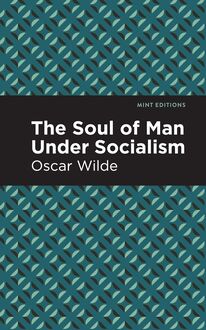-
 Univers
Univers
-
 Ebooks
Ebooks
-
 Livres audio
Livres audio
-
 Presse
Presse
-
 Podcasts
Podcasts
-
 BD
BD
-
 Documents
Documents
-
- Cours
- Révisions
- Ressources pédagogiques
- Sciences de l’éducation
- Manuels scolaires
- Langues
- Travaux de classe
- Annales de BEP
- Etudes supérieures
- Maternelle et primaire
- Fiches de lecture
- Orientation scolaire
- Méthodologie
- Corrigés de devoir
- Annales d’examens et concours
- Annales du bac
- Annales du brevet
- Rapports de stage
La lecture à portée de main
Vous pourrez modifier la taille du texte de cet ouvrage
Découvre YouScribe en t'inscrivant gratuitement
Je m'inscrisDécouvre YouScribe en t'inscrivant gratuitement
Je m'inscrisEn savoir plus
Vous pourrez modifier la taille du texte de cet ouvrage
En savoir plus

Description
After being injured during war, young naval officer Nevil Beauchamp is ordered to recover in Venice. With high ideals and big dreams, Nevil quickly falls in love with an energetic and intelligent young French woman named Renee de Croisnel. Though Nevil dreams of marrying Renee, eloping and living a happy life with each other, Renee reject his advances. Instead, she marries a rich, elderly man. Heartbroken, Nevil returns to the navy with a new perspective. After befriending a freethinking doctor, Nevil becomes influenced by new political beliefs. This soon alienates him from his wealthy uncle, Everard, who is very conservative. While his new political ideologies create a rift between he and his peers, Nevil decides to make political pursuits. But, after a surprise reunion with Renee, Nevil is burdened with romantic issues. Though Renee has now changed her mind, and wishes to marry Nevil and divorce his husband, Nevil has since become transfixed on another woman, leaving him with a difficult choice to make.
George Meredith prizes Beauchamp’s Career as his favorite and most impressive work. With complex themes and dynamic characters, this political romance portrays the culture of upper-class political circles while satirizing the conservative party. Originally published in 1875, Beauchamp’s career provides a fascinating perspective on Victorian politics, demonstrating their influence on the every-day influence of those involved. Featuring love triangles, family feuds, and changing minds, the smart and powerful prose of Beauchamp’s Career continues to demand attention of modern audiences and rewards readers with a stunning and unique narrative.
This edition of Beauchamp’s Career by George Meredith features an eye-catching new cover design and is presented in a font that is both modern and readable. With these accommodations, this edition is accessible and appealing to contemporary audiences, restoring this clever and romantic political narrative to modern standards while preserving the original mastery and genius of George Meredith’s work.
Sujets
Informations
| Publié par | Mint Editions |
| Date de parution | 09 mars 2021 |
| Nombre de lectures | 0 |
| EAN13 | 9781513278926 |
| Langue | English |
| Poids de l'ouvrage | 3 Mo |
Informations légales : prix de location à la page 0,0550€. Cette information est donnée uniquement à titre indicatif conformément à la législation en vigueur.
Extrait
Beauchamp’s Career
George Meredith
Beauchamp’s Career was first published in 1875.
This edition published by Mint Editions 2021.
ISBN 9781513278469 | E-ISBN 9781513278926
Published by Mint Editions®
minteditionbooks.com
Publishing Director: Jennifer Newens
Design & Production: Rachel Lopez Metzger
Project Manager: Micaela Clark
Typesetting: Westchester Publishing Services
C ONTENTS B OOK I I. T HE C HAMPION OF H IS C OUNTRY II. U NCLE , N EPHEW , AND A NOTHER III. C ONTAINS B ARONIAL V IEWS OF THE P RESENT T IME IV. A G LIMPSE OF N EVIL IN A CTION V. R ENEE VI. L OVE IN V ENICE VII. A N A WAKENING FOR B OTH VIII. A N IGHT ON THE A DRIATIC IX. M ORNING AT S EA U NDER THE A LPS X. A S INGULAR C OUNCIL B OOK II XI. C APTAIN B ASKELETT XII. A N I NTERVIEW WITH THE I NFAMOUS D R . S HRAPNEL XIII. A S UPERFINE C ONSCIENCE XIV. T HE L EADING A RTICLE AND M R . T IMOTHY T URBOT XV. C ECILIA H ALKETT XVI. A P ARTIAL D ISPLAY OF B EAUCHAMP IN H IS C OLOURS XVII. H IS F RIEND AND F OE XVIII. C ONCERNING THE A CT OF C ANVASSING B OOK III XIX. L ORD P ALMET , AND C ERTAIN E LECTORS OF B EVISHAM XX. A D AY AT I TCHINCOPE XXI. T HE Q UESTION AS TO THE E XAMINATION OF THE W HIGS , AND THE F INE B LOW S TRUCK BY M R . E VERARD R OMFREY XXII. T HE D RIVE INTO B EVISHAM XXIII. T OURDESTELLE XXIV. H IS H OLIDAY XXV. T HE A DVENTURE OF THE B OAT B OOK IV XXVI. M R . B LACKBURN T UCKHAM XXVII. A S HORT S IDELOOK AT THE E LECTION XXVIII. T OUCHING A Y OUNG L ADY ’ S H EART AND H ER I NTELLECT XXIX. T HE E PISTLE OF D R . S HRAPNEL TO C OMMANDER B EAUCHAMP XXX. T HE B AITING OF D R . S HRAPNEL XXXI. S HOWING A C HIVALROUS G ENTLEMAN S ET IN M OTION XXXII. A N E FFORT TO C ONQUER C ECILIA IN B EAUCHAMP ’ S F ASHION XXXIII. T HE F IRST E NCOUNTER AT S TEYNHAM B OOK V XXXIV. T HE F ACE OF R ENEE XXXV. T HE R IDE IN THE W RONG D IRECTION XXXVI. P URSUIT OF THE A POLOGY OF M R . R OMFREY TO D R . S HRAPNEL XXXVII. C ECILIA C ONQUERED XXXVIII. L ORD A VONLEY XXXIX. B ETWEEN B EAUCHAMP AND C ECILIA XL. A T RIAL OF H IM XLI. A L AME V ICTORY B OOK VI XLII. T HE T WO P ASSIONS XLIII. T HE E ARL OF R OMFREY AND THE C OUNTESS XLIV. T HE N EPHEWS OF THE E ARL , AND A NOTHER E XHIBITION OF THE T WO P ASSIONS IN B EAUCHAMP XLV. A L ITTLE P LOT A GAINST C ECILIA XLVI. A S IT M IGHT H AVE B EEN F ORESEEN XLVII. T HE R EFUSAL OF H IM XLVIII. O F THE T RIAL A WAITING THE E ARL OF R OMFREY XLIX. A F ABRIC OF B ARONIAL D ESPOTISM C RUMBLE B OOK VII L. A T THE C OTTAGE ON THE C OMMON LI. I N THE N IGHT LII. Q UESTION OF A P ILGRIMAGE AND AN A CT OF P ENANCE LIII. T HE A POLOGY TO D R . S HRAPNEL LIV. T HE F RUITS OF THE A POLOGY LV. W ITHOUT L OVE LVI. T HE L AST OF N EVIL B EAUCHAMP
BOOK I
I
T HE C HAMPION OF H IS C OUNTRY
When young Nevil Beauchamp was throwing off his midshipman’s jacket for a holiday in the garb of peace, we had across Channel a host of dreadful military officers flashing swords at us for some critical observations of ours upon their sovereign, threatening Afric’s fires and savagery. The case occurred in old days now and again, sometimes, upon imagined provocation, more furiously than at others. We were unarmed, and the spectacle was distressing. We had done nothing except to speak our minds according to the habit of the free, and such an explosion appeared as irrational and excessive as that of a powder-magazine in reply to nothing more than the light of a spark. It was known that a valorous General of the Algerian wars proposed to make a clean march to the capital of the British Empire at the head of ten thousand men; which seems a small quantity to think much about, but they wore wide red breeches blown out by Fame, big as her cheeks, and a ten thousand of that sort would never think of retreating. Their spectral advance on quaking London through Kentish hopgardens, Sussex corn-fields, or by the pleasant hills of Surrey, after a gymnastic leap over the riband of salt water, haunted many pillows. And now those horrid shouts of the legions of Caesar, crying to the inheritor of an invading name to lead them against us, as the origin of his title had led the army of Gaul of old gloriously, scared sweet sleep. We saw them in imagination lining the opposite shore; eagle and standard-bearers, and gallifers, brandishing their fowls and their banners in a manner to frighten the decorum of the universe. Where were our men?
The returns of the census of our population were oppressively satisfactory, and so was the condition of our youth. We could row and ride and fish and shoot, and breed largely: we were athletes with a fine history and a full purse: we had first-rate sporting guns, unrivalled park-hacks and hunters, promising babies to carry on the renown of England to the next generation, and a wonderful Press, and a Constitution the highest reach of practical human sagacity. But where were our armed men? where our great artillery? where our proved captains, to resist a sudden sharp trial of the national mettle? Where was the first line of England’s defence, her navy? These were questions, and Ministers were called upon to answer them. The Press answered them boldly, with the appalling statement that we had no navy and no army. At the most we could muster a few old ships, a couple of experimental vessels of war, and twenty-five thousand soldiers indifferently weaponed.
We were in fact as naked to the Imperial foe as the merely painted Britons.
This being apprehended, by the aid of our own shortness of figures and the agitated images of the red-breeched only waiting the signal to jump and be at us, there ensued a curious exhibition that would be termed, in simple language, writing to the newspapers, for it took the outward form of letters: in reality, it was the deliberate saddling of our ancient nightmare of Invasion, putting the postillion on her, and trotting her along the high-road with a winding horn to rouse old Panic. Panic we will, for the sake of convenience, assume to be of the feminine gender, and a spinster, though properly she should be classed with the large mixed race of mental and moral neuters which are the bulk of comfortable nations. She turned in her bed at first like the sluggard of the venerable hymnist: but once fairly awakened, she directed a stare toward the terrific foreign contortionists, and became in an instant all stormy nightcap and fingers starving for the bell-rope. Forthwith she burst into a series of shrieks, howls, and high piercing notes that caused even the parliamentary Opposition, in the heat of an assault on a parsimonious Government, to abandon its temporary advantage and be still awhile. Yet she likewise performed her part with a certain deliberation and method, as if aware that it was a part she had to play in the composition of a singular people. She did a little mischief by dropping on the stock-markets; in other respects she was harmless, and, inasmuch as she established a subject for conversation, useful.
Then, lest she should have been taken too seriously, the Press, which had kindled, proceeded to extinguish her with the formidable engines called leading articles, which fling fire or water, as the occasion may require. It turned out that we had ships ready for launching, and certain regiments coming home from India; hedges we had, and a spirited body of yeomanry; and we had pluck and patriotism, the father and mother of volunteers innumerable. Things were not so bad.
Panic, however, sent up a plaintive whine. What country had anything like our treasures to defend? countless riches, beautiful women, an inviolate soil! True, and it must be done. Ministers were authoritatively summoned to set to work immediately. They replied that they had been at work all the time, and were at work now. They could assure the country, that though they flourished no trumpets, they positively guaranteed the safety of our virgins and coffers.
Then the people, rather ashamed, abused the Press for unreasonably disturbing them. The Press attacked old Panic and stripped her naked. Panic, with a desolate scream, arraigned the parliamentary Opposition for having inflated her to serve base party purposes. The Opposition challenged the allegations of Government, pointed to the trimness of army and navy during its term of office, and proclaimed itself watch-dog of the country, which is at all events an office of a kind. Hereupon the ambassador of yonder ireful soldiery let fall a word, saying, by the faith of his Master, there was no necessity for watch-dogs to bark; an ardent and a reverent army had but fancied its beloved chosen Chief insulted; the Chief and chosen held them in; he, despite obloquy, discerned our merits and esteemed us.
So, then, Panic, or what remained of her, was put to bed again. The Opposition retired into its kennel growling. The People coughed like a man of two minds, doubting whether he has been divinely inspired or has cut a ridiculous figure. The Press interpreted the cough as a warning to Government; and Government launched a big ship with hurrahs, and ordered the recruiting-sergeant to be seen conspicuously.
And thus we obtained a moderate reinforcement of our arms.
It was not arrived at by connivance all round, though there was a look of it. Certainly it did not come of accident, though there was a look of that as well. Nor do we explain much of the secret by attributing it to the working of a complex machinery. The housewife’s remedy of a good shaking for the invalid who will not arise and dance away his gout, partly illustrates the action of the Press upon the country: and perhaps the country shaken may suffer a comparison with the family chariot of the last century, built in a previous one, commodious, furnished agreeably, being all that the inside occupants could require of a conveyance, until the report of horsemen crossing the heath at a gallop sets it dishonourably creaking and complaining in rapid motion, and the squire curses his miserly purse that would
-
 Univers
Univers
-
 Ebooks
Ebooks
-
 Livres audio
Livres audio
-
 Presse
Presse
-
 Podcasts
Podcasts
-
 BD
BD
-
 Documents
Documents
-
Jeunesse
-
Littérature
-
Ressources professionnelles
-
Santé et bien-être
-
Savoirs
-
Education
-
Loisirs et hobbies
-
Art, musique et cinéma
-
Actualité et débat de société
-
Jeunesse
-
Littérature
-
Ressources professionnelles
-
Santé et bien-être
-
Savoirs
-
Education
-
Loisirs et hobbies
-
Art, musique et cinéma
-
Actualité et débat de société
-
Actualités
-
Lifestyle
-
Presse jeunesse
-
Presse professionnelle
-
Pratique
-
Presse sportive
-
Presse internationale
-
Culture & Médias
-
Action et Aventures
-
Science-fiction et Fantasy
-
Société
-
Jeunesse
-
Littérature
-
Ressources professionnelles
-
Santé et bien-être
-
Savoirs
-
Education
-
Loisirs et hobbies
-
Art, musique et cinéma
-
Actualité et débat de société
- Cours
- Révisions
- Ressources pédagogiques
- Sciences de l’éducation
- Manuels scolaires
- Langues
- Travaux de classe
- Annales de BEP
- Etudes supérieures
- Maternelle et primaire
- Fiches de lecture
- Orientation scolaire
- Méthodologie
- Corrigés de devoir
- Annales d’examens et concours
- Annales du bac
- Annales du brevet
- Rapports de stage




















